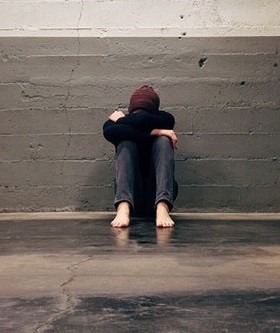Signs of Ethanol Abuse
There are many signs that may signify someone has an alcohol or etoh abuse disorder. While some of these signs are very noticeable, other might not be so easily identified. In addition, the severity of the etoh abuse may contribute to the signs that are displayed in a particular person. For example, if someone tries to cover up their abuse of alcohol by drinking alone or through isolating themselves, this can make it more difficult for loved ones and friends to help that person.
It can be quite easy to overlook a mild drinking problem as well. However, the things that may seem like minor issues, can become quite dangerous with time. The earlier warning signs of etoh abuse should never be ignored. Getting treatment for alcohol abuse sooner, rather than waiting, will allow the person to regain control over their life, before they lose too much of it.
ETOH Abuse Symptoms
If not treated promptly, etoh or alcohol abuse, can quickly get out of control. When someone has major negative effects to their life or harm to their life from using alcohol, the label of alcohol use disorder or AUD is given. Being able to recognize warning signs of etoh abuse and receiving the appropriate treatment can make a huge difference in the recovery process.
While there isn’t just one way to determine whether someone is actually an alcoholic, there are symptoms that often exist to help with the diagnosis. One symptom may cause another and add fuel to the fire, so-to-say. Some of the more common symptoms of etoh abuse include the following:
- Becoming irritable and having major mood swings
- Having blackouts or short-term loss of memory
- Choosing to drink instead of taking part in responsibilities
- Coming up with excuses to drink such as needed to relax, handle stress, or feel relief from pain
- Isolating oneself from loved ones and friends
- Drinking in secret or alone
- Feeling of being hungover even when not under the influence
- Changing acquaintances or groups of friends
It doesn’t matter how little a drinking issue may be, symptoms of etoh abuse should never get ignored. If you are struggling with alcohol abuse or you know someone who is, there is help available for you right away.
Recognizing Someone with Alcoholism
There are many different tools that are used for screening to tell if someone has alcoholism. One of the tools that is commonly used is called CAGE. This is a questionnaire that will measure how severe the drinking problem is. If you can say yes to 2 or more of these questions, it is important to get help. The CAGE questions include the following:
- Have you felt that you should stop drinking as much?

- Have people been annoyed by your drinking or criticized your drinking?
- Have you felt guilty or bad about your drinking?
- Have you drank first thing when you get up to steady yourself or to relieve a hangover?
Most of the time, a professional will also ask questions that come from the DIagnostic and Statistical Manual of Mental Disorders or the DSM. The reason for this is to properly provide a diagnosis of etoh abuse. Some of the questions you may be asked from the DSM include the following:
- Have you gotten in legal trouble due to your alcohol use?
- Have you been in situations where you had an increased risk of harm while drinking (drinking and driving, for instance)?
- Have you felt cravings or urges to drink alcohol?
- Have you had alcohol withdrawal symptoms before?
- Have you been losing interest in things you once enjoyed before you began drinking?
- Have you had situations where you drank more than you thought you would or said you would?
- Have you kept drinking even though it made you depressed, anxious, or contributed to a different health issue?
If you have answered yes to any of these questions, you may have an etoh abuse or alcohol abuse disorder. It may be helpful for you to reach out to an addiction treatment center right away.
Alcoholism or ETOH Abuse Dangers
Etoh abuse can cause many different issues. It can affect your professional, personal, and social life. Drinking long-term can increase your risk of developing major health issues and can lead to life-threatening problems as well. Millions of people are in denial about their alcohol abuse. Some people will rationalize their alcohol consumption, rather than admit they have a problem. There are many people who will even get defensive if someone tries to tell them they are concerned about their drinking. Some people blame others for their alcohol abuse as well.
No matter where you are at or what you are doing, if you can’t control your drinking, there are treatment programs available to help you out today. You can make the call and start to turn your life around.

